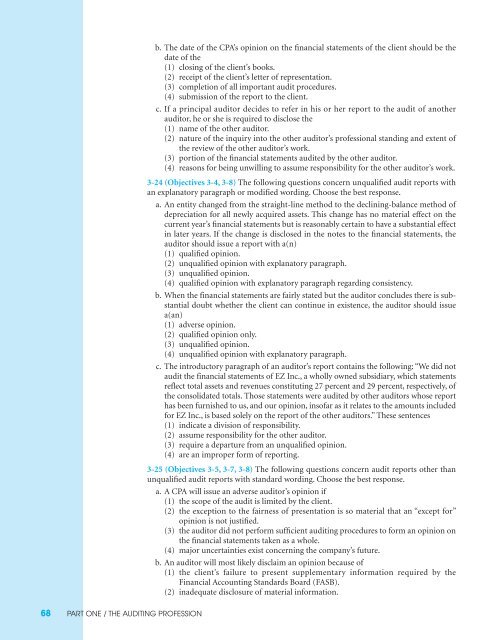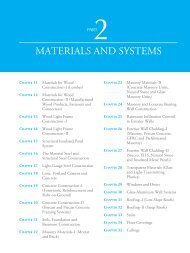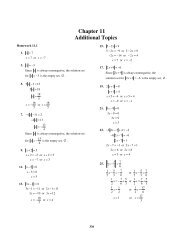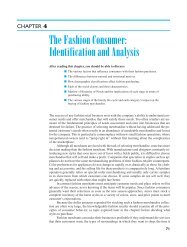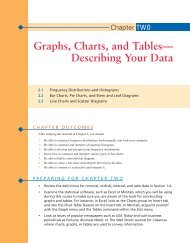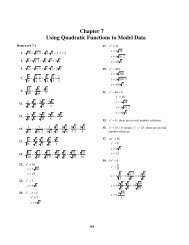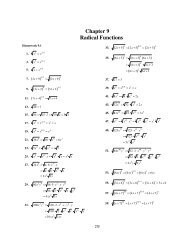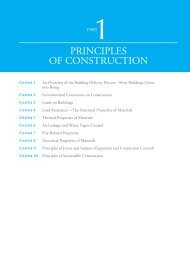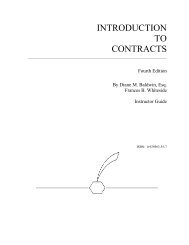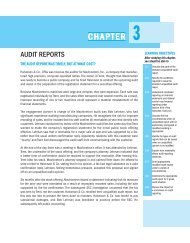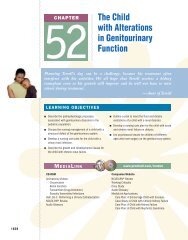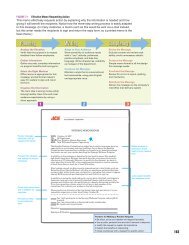audit reports
audit reports
audit reports
Create successful ePaper yourself
Turn your PDF publications into a flip-book with our unique Google optimized e-Paper software.
. The date of the CPA’s opinion on the financial statements of the client should be the<br />
date of the<br />
(1) closing of the client’s books.<br />
(2) receipt of the client’s letter of representation.<br />
(3) completion of all important <strong>audit</strong> procedures.<br />
(4) submission of the report to the client.<br />
c. If a principal <strong>audit</strong>or decides to refer in his or her report to the <strong>audit</strong> of another<br />
<strong>audit</strong>or, he or she is required to disclose the<br />
(1) name of the other <strong>audit</strong>or.<br />
(2) nature of the inquiry into the other <strong>audit</strong>or’s professional standing and extent of<br />
the review of the other <strong>audit</strong>or’s work.<br />
(3) portion of the financial statements <strong>audit</strong>ed by the other <strong>audit</strong>or.<br />
(4) reasons for being unwilling to assume responsibility for the other <strong>audit</strong>or’s work.<br />
3-24 (Objectives 3-4, 3-8) The following questions concern unqualified <strong>audit</strong> <strong>reports</strong> with<br />
an explanatory paragraph or modified wording. Choose the best response.<br />
a. An entity changed from the straight-line method to the declining-balance method of<br />
depreciation for all newly acquired assets. This change has no material effect on the<br />
current year’s financial statements but is reasonably certain to have a substantial effect<br />
in later years. If the change is disclosed in the notes to the financial statements, the<br />
<strong>audit</strong>or should issue a report with a(n)<br />
(1) qualified opinion.<br />
(2) unqualified opinion with explanatory paragraph.<br />
(3) unqualified opinion.<br />
(4) qualified opinion with explanatory paragraph regarding consistency.<br />
b. When the financial statements are fairly stated but the <strong>audit</strong>or concludes there is sub -<br />
stan tial doubt whether the client can continue in existence, the <strong>audit</strong>or should issue<br />
a(an)<br />
(1) adverse opinion.<br />
(2) qualified opinion only.<br />
(3) unqualified opinion.<br />
(4) unqualified opinion with explanatory paragraph.<br />
c. The introductory paragraph of an <strong>audit</strong>or’s report contains the following: “We did not<br />
<strong>audit</strong> the financial statements of EZ Inc., a wholly owned subsidiary, which statements<br />
reflect total assets and revenues constituting 27 percent and 29 percent, respectively, of<br />
the consolidated totals. Those statements were <strong>audit</strong>ed by other <strong>audit</strong>ors whose report<br />
has been furnished to us, and our opinion, insofar as it relates to the amounts included<br />
for EZ Inc., is based solely on the report of the other <strong>audit</strong>ors.” These sentences<br />
(1) indicate a division of responsibility.<br />
(2) assume responsibility for the other <strong>audit</strong>or.<br />
(3) require a departure from an unqualified opinion.<br />
(4) are an improper form of reporting.<br />
3-25 (Objectives 3-5, 3-7, 3-8) The following questions concern <strong>audit</strong> <strong>reports</strong> other than<br />
unqualified <strong>audit</strong> <strong>reports</strong> with standard wording. Choose the best response.<br />
a. A CPA will issue an adverse <strong>audit</strong>or’s opinion if<br />
(1) the scope of the <strong>audit</strong> is limited by the client.<br />
(2) the exception to the fairness of presentation is so material that an “except for”<br />
opinion is not justified.<br />
(3) the <strong>audit</strong>or did not perform sufficient <strong>audit</strong>ing procedures to form an opinion on<br />
the financial statements taken as a whole.<br />
(4) major uncertainties exist concerning the company’s future.<br />
b. An <strong>audit</strong>or will most likely disclaim an opinion because of<br />
(1) the client’s failure to present supplementary information required by the<br />
Financial Accounting Standards Board (FASB).<br />
(2) inadequate disclosure of material information.<br />
68 PART ONE / THE AUDITING PROFESSION


